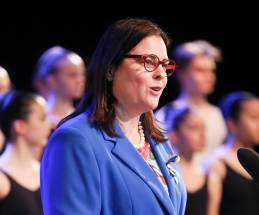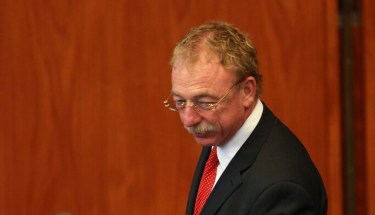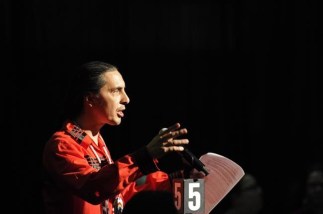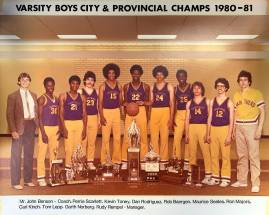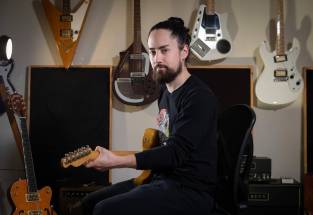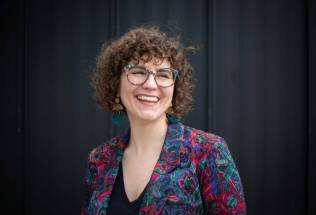The high cost of déjà vu The Assembly of Manitoba Chiefs has to find its voice to answer questions from vulnerable, exploited women in the Indigenous community
Read this article for free:
or
Already have an account? Log in here »
To continue reading, please subscribe:
Monthly Digital Subscription
$19 $0 for the first 4 weeks*
- Enjoy unlimited reading on winnipegfreepress.com
- Read the E-Edition, our digital replica newspaper
- Access News Break, our award-winning app
- Play interactive puzzles
*No charge for four weeks then billed as $19 plus GST every four weeks. Offer only available to new and qualified returning subscribers. Cancel any time.
Read unlimited articles for free today:
or
Already have an account? Log in here »
Hey there, time traveller!
This article was published 24/03/2022 (1006 days ago), so information in it may no longer be current.
At this point, in a long and haphazard reckoning with prominent men who exploit their power over women, it’s impossible to avoid the deja vu, the way the broad strokes of each incident are carbon copies of the others. It’s only the details that change: fill in the name, fill in the dates. Fill in the organizational structures that protected the person with the most power.
The arc of each incident, though, is almost uniformly predictable. There’s always a history of improper behaviour, known in close circles but mostly lurking below the surface, where the broad public can’t see. There’s always that first person to come forward, and then there are others, and then comes an awkward denial, often combined with a vague pledge to be better.
Above all, there is always a missed turnoff. A crossroad where, in retrospect, something might have been done sooner.
It’s too soon to say where that first turnoff might have been with Arlen Dumas. We don’t have enough information, not yet. But we do know that long before Dumas was suspended from his role as grand chief of the Assembly of Manitoba Chiefs on March 18 amidst an allegation of sexual violence, there were points where the AMC sailed past red flags.
Certainly, one such crossroad came in 2019, when Bethany Maytwayashing stepped forward to say that Dumas had sent her inappropriate messages after meeting her at the restaurant where she worked. At the time, Maytwayashing was 22, while Dumas was in his mid-40s. The messages she’d received were flirtatious, and asked her to “meet up.”
Dumas’s response to those allegations was conflicting. He admitted texting Maytwayashing to offer “advice and guidance,” but denied sending the specific messages that most creeped her out, which had been sent from a pseudonymous Facebook account claiming to be him, and then from his own phone number.
Those were fakes, Dumas claimed, created by some unknown person as a political smear to damage his reputation.
At the same time, he would take two weeks away from his job to “heal” from recent personal grief, and that he had an “open and informal communication style” that “may not be suited” to his role as grand chief. He said he understood Maytwayashing didn’t “appreciate” his messages, which seemed at odds with his insistence that all he’d done was offer advice.
Back then, there were pledges of investigations to get to the bottom of things, but the AMC largely stood by its man. In a release, the organization called reporting of the incident — which had been led by Indigenous-run APTN — a “media circus” and a “distraction” from the issues facing Indigenous people, and ran ads warning of digital impersonation.
Whatever happened with the promised investigation is unclear. No outcome was ever made public, and Maytwayashing says she never heard from anyone. The only person, it appears, to face any sort of actual repercussion was Maytwayashing’s then-boyfriend, who was served with legal papers warning him against making “salacious accusations.”
While Maytwayashing may have been the first to go public, she was not the last. Around the time that she spoke out in the summer of 2019, other Indigenous women opened up about incidents in which Dumas had appeared to leverage his status seeking what were, at the very least, inappropriate connections.
Now, Dumas is facing even more serious allegations. Though the details of the report that forced his suspension have not yet been made public, we know that an AMC staff member told that organization she had been subjected to “harassment, sexual harassment, and sexualized violence” by Dumas, since nearly the beginning of her employment.
A criminal complaint has been filed and Winnipeg police are investigating.
In the wake of this accusation, the whispers about Dumas’s behaviour — which multiple local Indigenous advocates say has long been an open secret in their circles — appear to finally be getting enough amplification to be heard. On Monday, a rally in front of AMC offices drew about 50 people, led by Indigenous women, demanding action.
“Who’s protecting us?” they chanted.
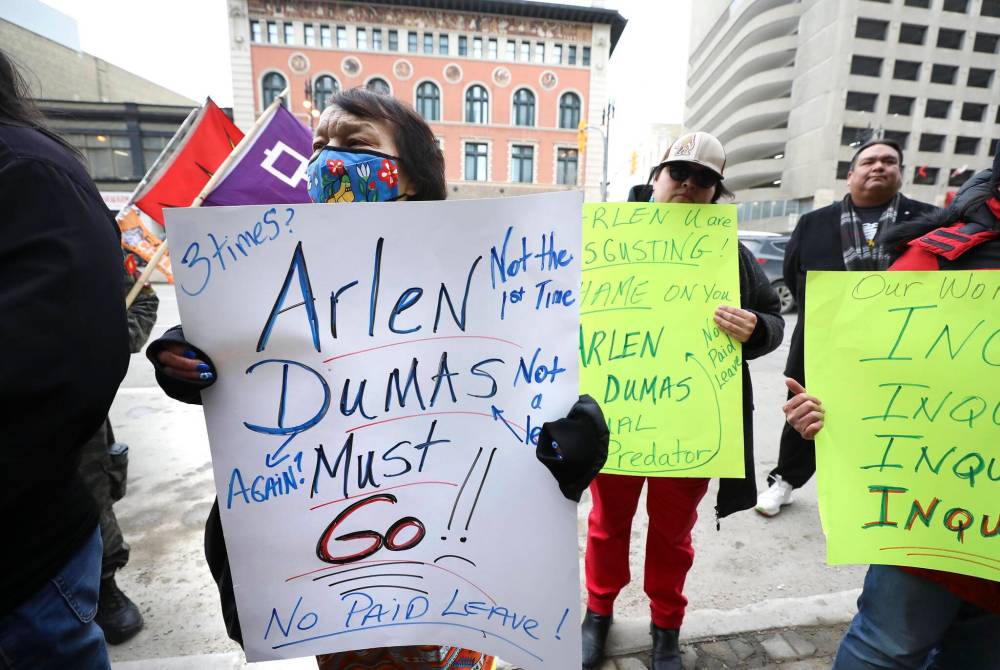
That is, above all, the critical question. Many details are not yet publicly known and, as far as the criminal complaint goes, Dumas is, of course, innocent until proven guilty. But some facts are clear: the AMC had been aware for at least 2 1/2 years that there were multiple concerns about his behaviour with women, and it appears the organization did nothing.
Needless to say, that inaction is especially heartbreaking, coming from an organization with an obligation to be a voice for Indigenous people at the most risk of exploitation and gender-based violence; but it is nothing new. It is just a new face of that terrible deja vu, that periodic reminder of how power works, and how it conspires to elude being held accountable.
But in this bleak news, perhaps there is hope. It comes in with the sun. Because in Manitoba, there are powerful voices for Indigenous women, and a wealth of ideas about Indigenous-centred healing and justice processes; there is a chance now, with the stage of broad public attention, for those voices to be lifted and most fully heard.
“How is AMC making decisions (that are) more gender-balanced?” – Hilda Anderson-Pyrz, chairwoman of the National Family and Survivors Circle
After the latest allegation surfaced, Hilda Anderson-Pyrz, chairwoman of the National Family and Survivors Circle and one of the nation’s most tireless advocates for Indigenous women, girls and two-spirit people, called for an independent council of elder women to be part of the investigation, and asked some other pointed questions.
“How is AMC making decisions (that are) more gender-balanced?” she said. “How is AMC reclaiming roles for women, girls and (LGBTTQ+) people and supporting them in the workplace and making it safe? What is AMC doing to support all First Nations women in communities who have experienced sexual violence or any form of gender-based violence?”
These are the questions AMC must now answer to its own community, above all. Because we know — have known for a long time — that the status quo is no longer good enough. No longer is it enough to fill in the names or fill in the dates. No longer will people accept the deja vu of watching these incidents unfold, wondering when they will truly change.
melissa.martin@freepress.mb.ca

Melissa Martin
Reporter-at-large
Melissa Martin reports and opines for the Winnipeg Free Press.
Our newsroom depends on a growing audience of readers to power our journalism. If you are not a paid reader, please consider becoming a subscriber.
Our newsroom depends on its audience of readers to power our journalism. Thank you for your support.






